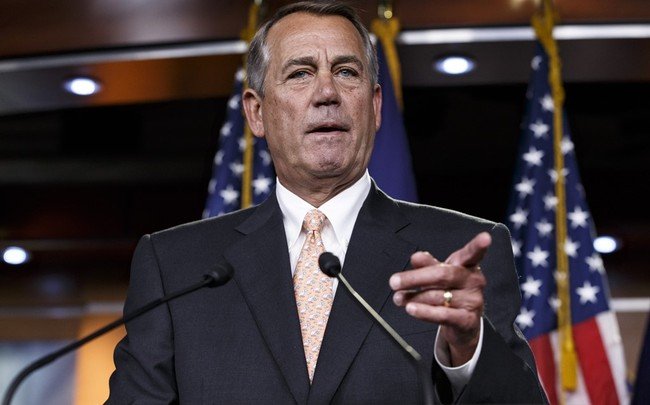With the Supreme Court expected to announce a number of key decisions this month, one in particular could have a wide-ranging impact on our economy and on the principle of federalism itself. IN South Dakota v. WayfairThe Court will decide whether to uphold its earlier decision that states cannot force businesses to collect and remit sales taxes unless those businesses have a physical presence in their state. A bad court decision – as well as possible legislation from Congress – would lead to online sales taxes that would hurt hundreds of thousands of small businesses across the country and change the face of the internet economy.
In 1992, the Court ruled in Quill Corp vs. North Dakota that states do not have the authority to impose sales tax burdens on businesses that do not have a physical presence in their state. This crucial precedent prevented states from taxing, auditing, or regulating businesses and individuals that were not domiciled in the state. State and local governments – as well as some allies in Congress – want to get as much revenue as possible and try to find a way to reverse this precedent. The Wayfair decision will determine whether we continue this critical model – as will subsequent decisions by Congress.
An entrepreneur starting a business on the Internet should not become a national tax collector. There are currently over 10,000 sales tax jurisdictions in the United States. If an online sales tax is introduced, these small businesses will now be forced to calculate and collect taxes for all different jurisdictions. As a former local and state official, I know firsthand how complicated these taxes can be. Some products will qualify for one rate, while another product will have a different tax rate, and taxes in one city, town or county will differ from rates in other parts of the state. Hard-working entrepreneurs alone or with several employees would have to navigate the maze of taxes. Most will likely need to hire accountants or tax lawyers to facilitate them figure this out, which in the case of a small business will lower financial costs, which will jeopardize its profits and ability to retain employees.
More troubling, such a tax would suddenly expose these companies to audits or tax bills from states or localities where they do not live or vote. As a conservative, the last thing I want is for businesses to become targets for aggressive tax collection and audits by officials in other states. As outlined in a letter signed earlier this year by numerous conservative and taxpayer groups, “eliminating physical presence protections for remote retail sales could open the door for states to aggressively attempt to enforce not only their state tax laws, but also those of businesses and individuals “. income tax laws and even activist regulatory obligations imposed on out-of-state entities.”
An internet sales tax would be a repudiation of our nation’s long-held belief that there can be no taxation without representation. Allowing governments to tax people who do not live or vote in their state and who will not benefit in any way from those taxes is contrary to the system of federalism created by our founders.
Sales tax supporters say states lose enormous revenue. The facts say otherwise. Former Rep. Chris Cox (former chairman of the Securities and Exchange Commission), who has long been an advocate against internet taxes, noted in a recent WSJ article that despite South Dakota’s claims on the matter: “[t]State data shows that sales and apply tax revenues increased from $787.7 million in 2013 to $974.7 million in 2017 – significantly faster than the state’s economic growth rate.” He added that sales tax revenues are rising rapidly in most states.
While it may seem like an online sales tax is a good way to impose it on some of the giant online sellers who can get away with not paying taxes, it’s quite the opposite. The tax would effectively be a form of cronyism that helps these enormous retailers. Amazon and Wal-Mart, among others, already collect sales taxes because they have a physical presence across the country. These companies want a tax on online sales because it would hurt small businesses that compete with them and give them a greater advantage. They have the resources and staff to craft thousands of tax rules – small businesses don’t.
The upcoming court decision is not the only threat to small entrepreneurs. In recent years, many members of Congress, including Republicans who should oppose higher taxes, have tried to craft legislation to allow such Internet taxes. During the debate on the omnibus spending bill, members tried to include this tax – with the support of Speaker Ryan. Many believe that there will be another attempt during the lame duck session. With Republicans having great success in cutting taxes, easing regulations, and turning around the economy, the last thing we need to do is allow higher taxes and a more invasive government – just like an internet sales tax would do. Polls consistently show that Americans overwhelmingly oppose an online sales tax.
The coming weeks and months will be crucial in this debate, and entrepreneurs and supporters of free market principles must remain decisive and fight any attempts to impose taxes on online sales. We cannot allow policies to raise taxes, hurt small businesses, discourage entrepreneurship and destroy the concept of no taxation without representation in order to facilitate some enormous retailers and satisfy the revenue desires of politicians across the country.
# # #
Ken Blackwell, former Ohio State Treasurer, Ohio Secretary of State and Mayor of Cincinnati, serves on the boards of the National Taxpayers Association and the Club for Growth. He also served as a domestic policy advisor on the Trump Transition team.


